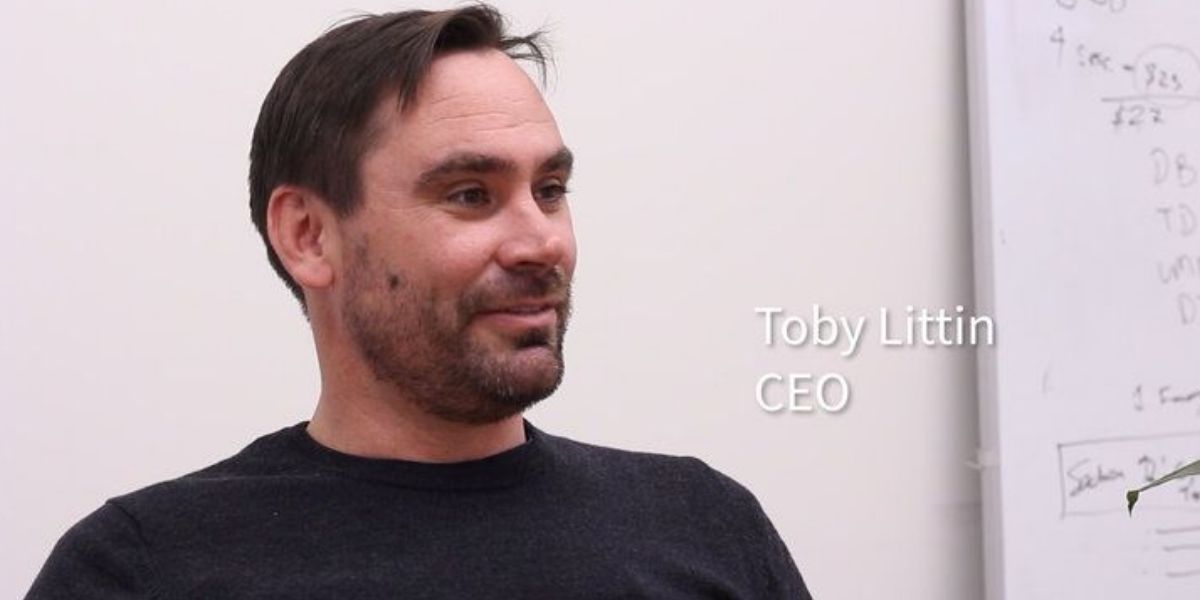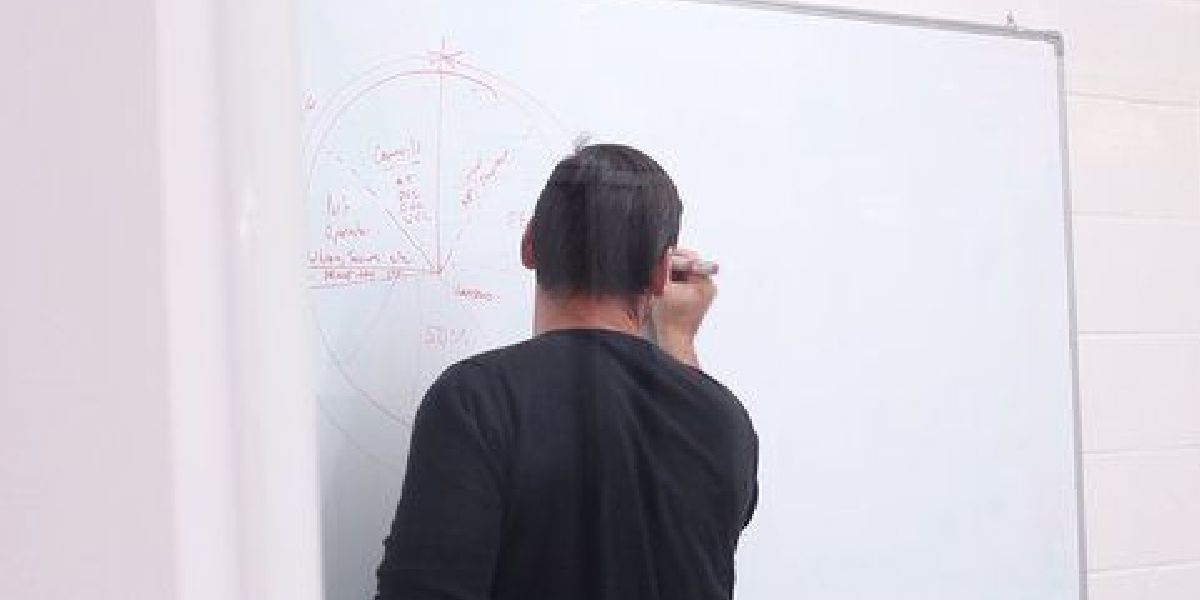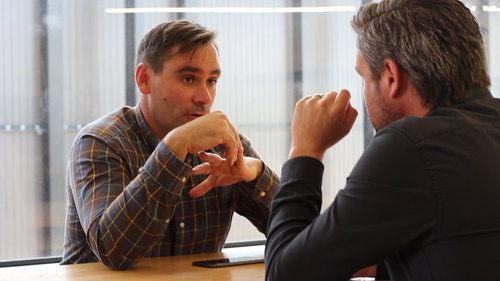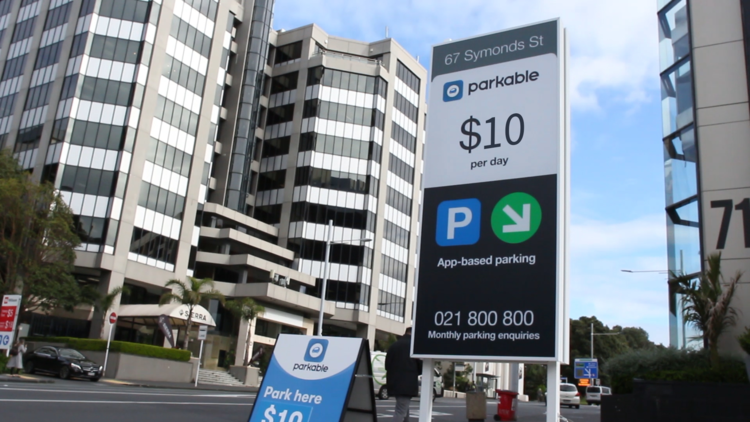Startup to Scale Up: Capital raising
Many people who are starting their own business will require outside investment, and that means going through a (possibly daunting) capital raise process.
In this episode of the Startup to Scale Up series, we talk to Parkable CEO Toby Littin about his experience capital raising for a business in its infancy, and how drastically different the capital raise is now, nearly three years down the track.

What is it like, capital raising in New Zealand?
“Capital raising in New Zealand is quite different to how it works in other countries, and that comes from the fact that New Zealand is so small. It’s very easy to get in front of potential investors - it’s very easy to find them. Once you’ve found one, you will meet others, because they all tend to know each other - their community is quite small. So that’s good, but it’s also quite difficult because there’s not nearly as much money in the early stage investment market in New Zealand as there is elsewhere. So that makes it really hard. Invariably, people are investing smaller amounts of money, and invariably people will already know you, your family, or your friends, so that adds a layer of complexity and consideration that I think is not present elsewhere in the world. But it’s fun - having those networks, knowing that you can get an introduction to someone easily, makes it fun.”
What is the process of a capital raise?
“Well, I can tell you the process that we followed, but I don’t know if that’s ‘the process’ or best practice. So what we do is we sit down and figure out how much money we need in the investment round. That requires a bit of forecasting, budgeting - the dry, boring stuff. The next step is we prepare an investment teaser, which describes who we are as a business, what we’re trying to achieve, how much money we’re trying to raise, what the opportunity is for an investor - and that helps to distill our thinking about the investment itself. Then we create what’s called a pitch deck, which is a powerpoint presentation that steps through the investment opportunity. Once we’ve got those things together, then we start making phone calls, and in the early days you’re going out into the big bad world with no one on your side. As you grow you go to your existing investors first and you see if they’re interested, and if they can introduce you to anyone else, other investors. And you just keep going through that process and talking people through the pitch deck. We now go to the occasional pitching event, where there are a group of investors in the room and we pitch to them all at once.
“An investor will say, ‘Yep, I’m interested,’ and then they will go through an amount of due diligence, which is a process where they ask us a bunch of questions to get clarity around our business so that they can see that what we’re promising stacks up with who we are and what we’re doing. Once they’re satisfied with that, then they sign a few documents and we issue them shares and then that’s it - you’re away.”
Usually how many investors will be involved per round?
“Everyone’s really, really different; it’s very common for one investor to take out one round. In our case, that’s not how it works. We’ve got an existing pool of investors, and across the last three rounds we’ve got about four to five new investors each round. And that’s what is appropriate for the path that we’re on in New Zealand, that’s different from what it might be offshore where you might get one significant investor, and maybe one or two more, and then the lead investor will follow on for subsequent rounds. In New Zealand, that doesn’t hold true, because the capital markets are a little bit shallower, there’s just not as much money.”
What was it like the very first time you tried to raise capital?
“It was very surprising! So the first time I tried to raise money, because I had a background in investment, and knew a lot of investors, I thought that made life a whole lot easier. So I went out to a bunch of people who I knew, who I was very friendly with, and I said ‘Hey, I’ve got this great new investment opportunity’, and the first guys I went to said no. And that was really surprising - I was like, ‘Well, what do you mean? This is the best idea in the world, how can you possibly say no to this?’ And they were like, ‘Look, it’s not for us, come back later.’ I had worked in investment, I was used to being the guy who said no, or said yes, but it was still a surprise to me, because, moving from the role of investor into founder, when you’re capital raising, you have this firm conviction that your idea is amazing. It takes a little while to adjust and to realise that maybe our idea is not for everyone.

“After that I must have had three hundred conversations across a hundred individual investors, and we raised the princely sum of $155,000. Which is not very much money, and it was an awful lot of work for not very much money, for what I thought was a relatively refined proposition, what I thought was a relatively refined pitch deck and process, having seen hundreds of these things before. But, yeah, it was surprisingly difficult. It made me question everything I thought I knew about early stage investment.
“It was kind of an ongoing thing - you know, now, we talk about it in the context of ‘rounds’, like, I’m going to open a round, I’m going to close it on this date, and raise this much money - but for very early stage ventures in New Zealand, that’s a little more difficult to achieve. It tends to come in dribs and drabs, and so we just kept the round open, and that $155,000 we raised over about three months. In an ideal world, I would have formally opened that round on the first of June and closed it on the thirtieth of June, there would be defined dates. But all of the founders had day jobs while we tried to start the business, and were putting our own money in, and so scheduling the timing of things was difficult.”
Over the last 3 years, how has capital raising for Parkable changed? How did the conversation go at the beginning compared to now?
“Oh, it’s totally changed. In the first instance we went through the motions of planning, we went through the motions of saying how much we wanted to raise - we were actually seeking $300,000 in that first round - but taking whatever we could get. And we were just going to keep raising until we had our $300,000. But now, we’re far faster. Now we are almost more aggressive in our capital raising. I’m harder in my conversations with investors - they’re either interested or they’re not, and if they’re not then I move on very, very quickly. In the early days, if someone feigned interest, I’d keep going back, and it would become no by default, not no because they said no. Whereas now, if there’s no definite interest I just shut down the conversation and move on to the next person. We don’t have the time or the resources to pursue investors who are not highly supportive. What that means is, I have far punchier conversations.

“The investor profile we have has also changed a lot. In the early days our investors were all personal acquaintances who ultimately backed us. Well, actually, the first investors were the three founders - we all put money in to fund the operating cost, and we worked for free. And then, when we reached the end of our limit, and particularly when we left our day job’s, there was no income and we couldn’t continue to fund Parkable. That’s when we went to investors. And those early guys, they were people like family, some close colleagues who I used to work with, close personal friends; they were our backers. They kind of all said, ‘We don’t actually care what your idea is, Tobes, we’re backing you and Brody and Warwick’ - that was the nature of the investment. Whereas now, fast forward two and a bit years, the investors care a lot about the idea, they care a lot about the market that we’re participating in, they care a lot about whether we have a competitive advantage, they care a lot about revenue. And it’s a brutal, horrible reality, but I feel like if we just continue to deliver revenue & profit growth, then that’s what they care about.
“Our revenue is growing really strongly, and quite frankly that’s the single biggest thing that investors care about. Because we can demonstrate that, we can point to hard facts, we have a proven track record, it means that the conversations we have are faster, it means that our story is much more credible, it means that decisions are made much more quickly, and I can introduce urgency into it now, whereas before I couldn’t. Now, I can say that I need a decision by this date, otherwise I’ll move on to the next investor and you’ll miss out, and that’s a very true statement. In our last capital raise we were oversubscribed, we had the luxury of being able to choose which investors we brought onboard, and that’s hugely different to the early days when I would have taken money from someone on the street. You can afford to be a lot more selective later in the piece. The process is faster, and there’s far more support around a capital raise. There’s also far more money in growth capital markets than there is in that early startup stage market. Everything about it is very, very different.”
Do you have any advice for those going into their first capital raise?
“For goodness’ sake, I’d say to anyone, first get revenue and show revenue, show that you’re growing, before you try to raise capital. It makes life so much easier in terms of investment. I think now I could pretty much have a pitch deck with a single slide, and that’s a graph with our revenue curve. A lot of investors just don’t care what the idea is, it’s far more dispassionate - which is kind of sad, and I sometimes wonder about that.
“Other than that, just stick with it. For founders who are wanting to raise money, just stick with it, stick with it. Practice your pitch, pitch to everyone, because you never know when the next investor might come through. Lean on it, lean on your personal relationships, people who you know who might be connected to investors - lean on them, follow them up. They’re not going to follow up on your behalf. Lean on them, say, can you hook me up with this person for a coffee, and can we do this together, because those personal introductions are gold in the early days.
“And for the investors side, I would say to be fast with your decisions. Be honest but gentle. You know, there are a lot of investors out there who don’t want to say no, so they drag it on, and on, and on, and that’s bad. You’re better to say no upfront and then to justify it - tell them why it’s no. Some of the best investors I’ve met said no, but they said exactly why, and it allowed us to improve our pitch and proposition, or to target our investors more deftly.”

Suggested articles
Lack of staff parking is a major bone of contention. Time wasted cruising for parking, and earlier starts by employees racing to win limited parking, take their toll on worker wellbeing. This is even more pressing with flexible working.
Seattle landlords are in a high-stakes battle for tenants and every advantage matters.
With downtown office vacancy topping 32%, owners are pouring millions into rooftop terraces and high-end lobbies. But many are missing one of the most powerful (and profitable) levers hiding in plain sight: the parking garage.
In a city shaped by hybrid work and long commutes, parking has become a top-two tenant priority and a quiet driver of NOI. This article breaks down how forward-thinking landlords are turning empty bays into booked spots, revenue, and tenant loyalty -without building a single new space.
Hybrid work broke the old parking playbook. Now, forward-thinking Chicago landlords are reimagining parking—not as a sunk cost, but as a strategic lever for NOI, tenant satisfaction, and operational efficiency. Discover how smarter parking is turning underused space into asset performance, and why this quiet shift is gaining serious traction.
Solve your parking problems
If you have workplace parking spots and want to...
- Improve employee parking experiences
- Reduce car park admin
- Make better use of your space
- Align your parking with a flexible working culture
- Implement hardware solutions
 Blog
Blog